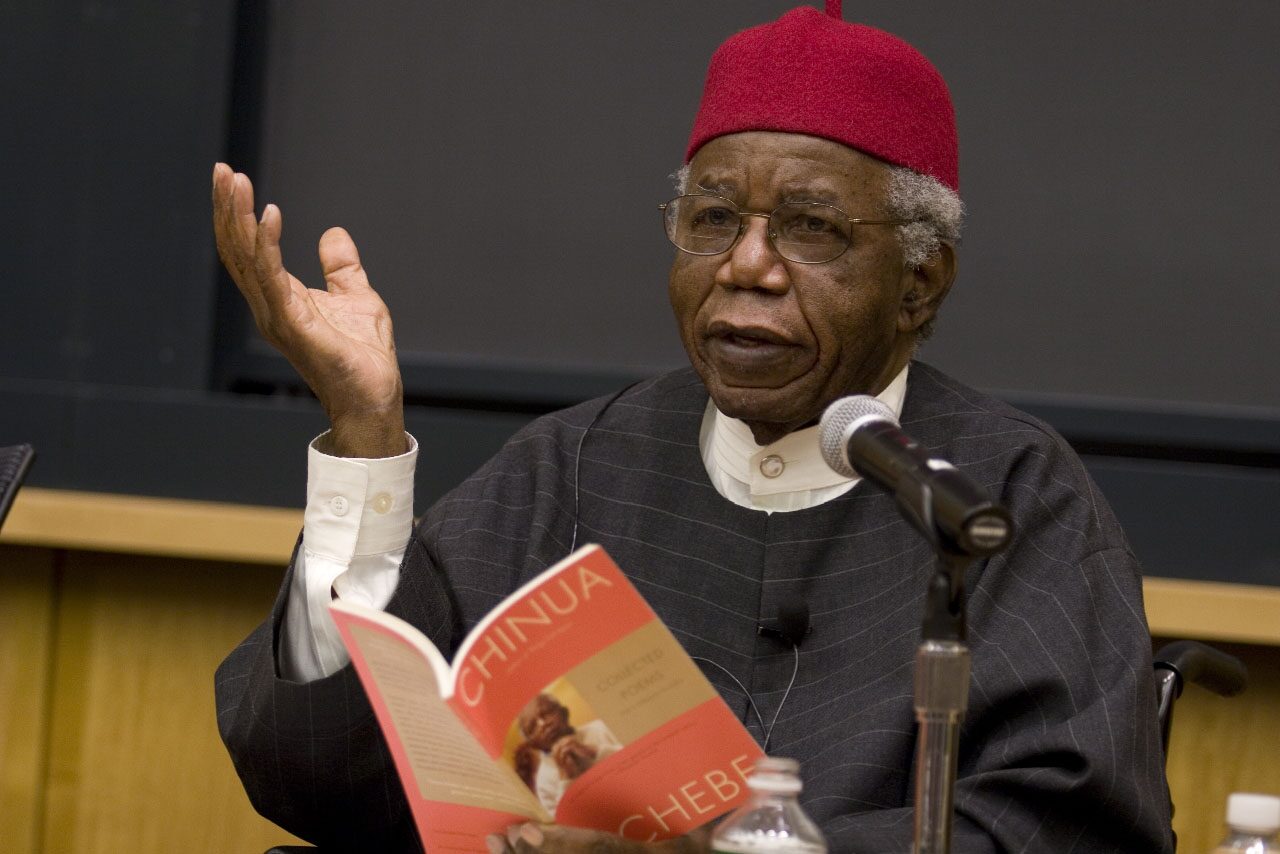
Top 30 Cartoon Characters That Were Villains
Our list rounds up the top 30 cartoon characters that were villains, each one more wonderfully wicked than the last.
Opinions
Achebe’s work remains a beacon for future generations of writers and readers, reminding us of the power of storytelling to change the world.

Few Africans have made their mark in the world of literature the way the author Achebe has. Mentioned in the same breath as the likes of Wole Soyinka, himself no small man in the industry, it is telling that it is Chinua Achebe and not his arguably more celebrated contemporary who is often hailed as the father of African literature.
As a novelist, Chinua Achebe can lay claim to the authorship of the most significant piece of literature to ever come out of the Black Continent. In this article, we explore his life, the masterpieces he created, and the lasting impact of his work.

Chinua Achebe was born on November 16, 1930, in Ogidi, a town in southeastern Nigeria to Isaiah Achebe, a teacher, and Janet Anaenechi.
Achebe was raised in a Christian family with a strong emphasis on education. His early years were shaped by the colonial rule in Nigeria, which would later become a central theme in his writings. He attended the premier varsity in the country, the University of Ibadan, where he studied English, history, and theology, and graduated in 1953. This was the period when Nigeria was under British colonial rule, and the socio-political landscape of the country was beginning to shift.
Achebe’s early exposure to both Western and traditional African values made him acutely aware of the tensions between the two. This tension would later be evident in his writing, where he explored the collision of cultures and the effects of colonialism on African identity.
His background in education, as well as his keen understanding of the social and political issues of his time, laid the foundation for his future literary career.
Chinua Achebe’s books are renowned for their insightful examination of post-colonial Africa and their critique of European imperialism. His works address themes of identity, the clash of cultures, the consequences of colonialism, and the struggle for self-determination. Below are some of his most significant works:

Achebe’s debut novel, Things Fall Apart, is perhaps his most well-known work and remains one of the most important African novels ever written.
It tells the story of Okonkwo, a respected warrior in the Igbo community of Umuofia, who struggles with the arrival of British colonialism and Christian missionaries.
The novel explores the destructive impact of European imperialism on African societies and is celebrated for its rich portrayal of Igbo culture. Achebe’s choice to tell the story from the perspective of the colonized rather than the colonizer was revolutionary at the time and has since become a hallmark of post-colonial literature.

In this novel, Achebe explores the theme of the educated African caught between two worlds: the traditional African culture and the Western ideals imposed by colonial powers.
The protagonist, Obi Okonkwo, is sent to England for his education and returns to Nigeria as a colonial civil servant. The novel discusses issues of corruption, societal expectations, and the struggles of reconciling modernity with tradition.

Arrow of God is set in the fictional village of Umuaro in southeastern Nigeria. The novel focuses on the conflicts within the Igbo community, as well as the tension between traditional Igbo beliefs and Christianity.
The story centers around Ezeulu, a high priest of the god Ulu, who is caught in a moral dilemma as the British authorities attempt to impose their beliefs on the people.

This satirical novel takes a sharp look at Nigerian politics, particularly the rise of corrupt leaders in the post-independence era.
Through the character of Odili, a young man who becomes disillusioned with the political system, Achebe critiques the greed, corruption, and mismanagement that plagued the newly independent African nations.

Achebe’s final novel is set in the fictional African nation of Kangan, and it focuses on the political turmoil and military dictatorship that follows independence.
The novel is a powerful commentary on the corruption and disillusionment that took hold of many African countries after they gained freedom from colonial rule. The narrative explores the complexities of leadership and the price of political power.

Chinua Achebe’s legacy extends far beyond his books. His works gave a voice to Africans who were previously silenced by the dominant colonial narrative.
Achebe’s writing challenged the portrayal of Africa in Western literature, which often depicted the continent as a savage, primitive place. By contrast, Achebe presented Africa as a rich, complex world with its own history, culture, and values.
Achebe’s impact was also felt in his role as an intellectual and activist. He was vocal about the political and social issues of his time, and his criticism of both colonialism and the post-independence African governments has made him an enduring figure in African politics and culture.
His works have been translated into numerous languages and continue to inspire writers, scholars, and activists around the world. Achebe’s contribution to literature was recognized through numerous awards and honors, including the Man Booker International Prize and the Nigerian National Merit Award.
Chinua Achebe’s books not only shaped the landscape of African storytelling but also highlighted the complexities of the African experience during the colonial and post-colonial periods. Achebe’s books are more than just stories; they are a reflection of his life, his struggles, and his unrelenting desire to give a voice to those who had been silenced.
His legacy endures in the pages of his books, which continue to shape the way we view African history and culture. Achebe’s work remains a beacon for future generations of writers and readers, reminding us of the power of storytelling to change the world.

The Tyrant Overlord. Fantasy buff and avid football fan.

Our list rounds up the top 30 cartoon characters that were villains, each one more wonderfully wicked than the last.

DC is great at making comics and animated movies, while the MCU has the upper hand in its cinematic aspects

Discover the best apps to read books for free in 2025. Access thousands of free e-books and audiobooks on your phone or tablet. ...

There are some outright funny cartoon characters who exist solely to crack you up, loud, hard, and with zero apology.

Things Fall Apart is for the colonizers as well as the colonized, helping to understand the role of colonialism in the realization...

While many of the Nollywood movies on our list are quite old, it’s a testament to the capabilities of the industry’s p...

While this isn’t an exhaustive list, it comprises some of the most popular mythical creatures from around the world.